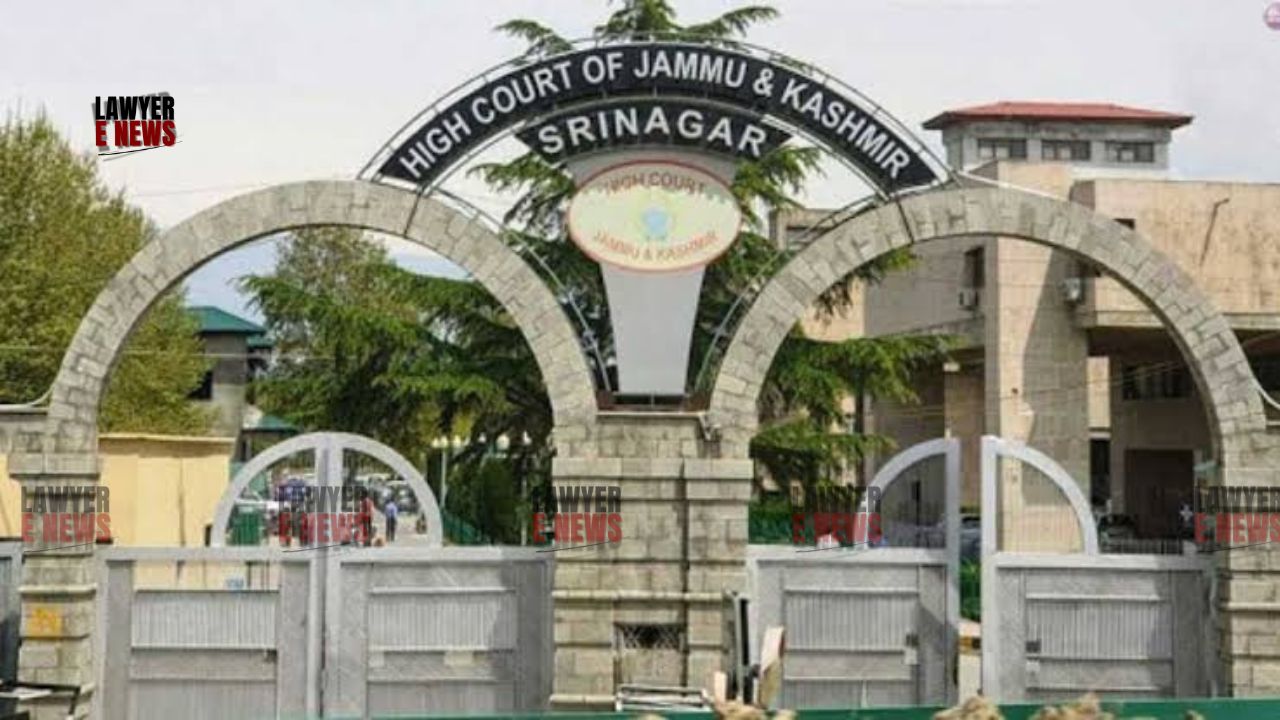-
by Admin
15 February 2026 5:01 PM



High Court directs trial court to frame charges against Ravinder Singh, emphasizing the importance of CDRs and corroborative evidence in narcotics cases.
The High Court of Jammu & Kashmir and Ladakh at Jammu has set aside the trial court’s order discharging the accused, Ravinder Singh, in a significant narcotics case involving the recovery of over 50 kilograms of heroin. The High Court, led by Justice Rajesh Sekhri, highlighted the crucial role of call detail records (CDRs) and other corroborative evidence in forming a prima facie case against the accused, directing the trial court to frame charges and proceed with the trial.
The case originated on August 6, 2018, when a truck carrying 51 packets of heroin, weighing approximately 50.3 kilograms, was intercepted by the Narcotics Control Bureau (NCB) and local police at Rajiv Nagar Chowk, Narwal, Jammu. The truck’s driver and conductor, Gurjit Singh and Ravi Kumar, were arrested, and their statements under Section 67 of the NDPS Act implicated Ravinder Singh, who was then lodged in Central Jail, Kot Bhalwal, Jammu.
Justice Sekhri emphasized the significance of CDRs in establishing connections between the accused parties. “The CDRs showing contact between the co-accused and the respondent while he was in jail, along with evidence of frequent meetings, are substantial and must be scrutinized during the trial,” noted the court. The CDRs indicated that Ravinder Singh was using a mobile phone inside the jail to coordinate the narcotics transactions.
The High Court referred to the Supreme Court’s decision in State by (NCB) Bengaluru vs. Pallulabid Ahmad Arimutta & Anr., which affirmed the admissibility of CDRs and their examination during the trial. Additionally, the court noted that while statements made to NCB officers under Section 67 of the NDPS Act are inadmissible as per Tofan Singh v. State of Tamil Nadu, corroborative evidence like CDRs and physical meetings are crucial for forming a prima facie case.
Justice Sekhri reiterated that statements made by the accused under Section 67 of the NDPS Act are inadmissible due to the provisions of Section 25 of the Evidence Act. “The investigating agency’s reliance on CDRs and evidence of physical meetings is necessary to support the statements made under Section 67,” the judgment stated.
Justice Sekhri emphasized the court’s stance: “Call detail records and physical meetings as material evidence must be examined during the trial to establish a strong suspicion of the accused’s involvement.”
The High Court’s decision underscores the judiciary’s commitment to ensuring thorough investigation and trial processes in narcotics cases. By directing the trial court to frame charges and proceed with the trial, the judgment reaffirms the importance of corroborative evidence like CDRs in establishing a prima facie case. This decision is expected to strengthen the prosecution’s approach in similar cases, emphasizing the need for comprehensive evidence beyond confessional statements.
Date of Decision: July 3, 2024
Union of India Through Intelligence Officer, Narcotics Control Bureau, Jammu Zonal Unit vs. Ravinder Singh
